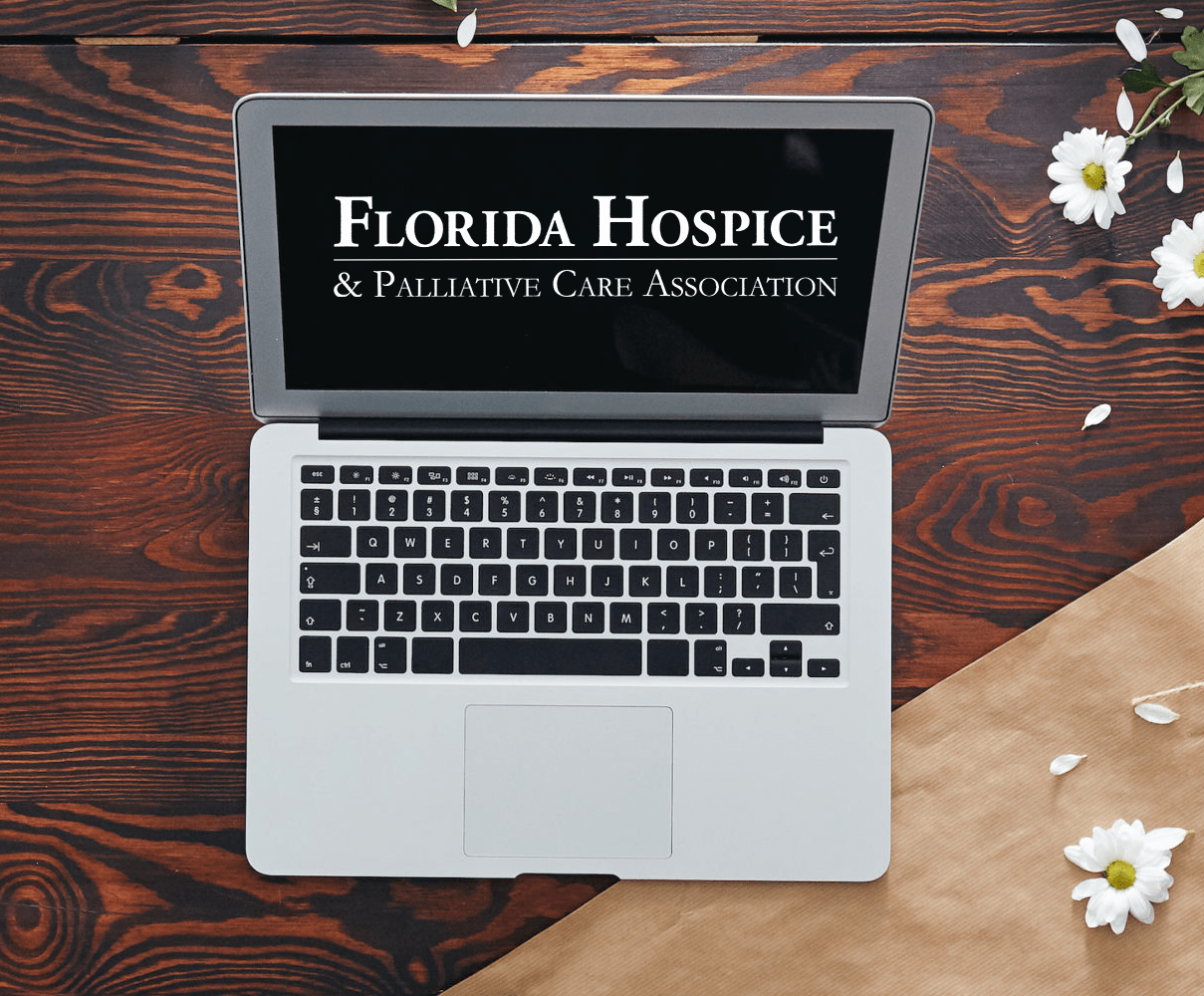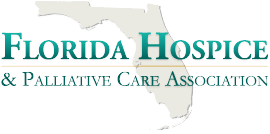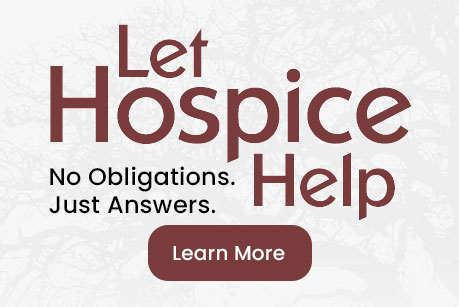News
This year’s Forum was a great success! While we are preparing follow-up emails, evaluations, attendee lists, and CEU information to go out this week, don’t forget to mark your calendar for 2025:
Upcoming Events
Sun
Mon
Tue
Wed
Thu
Fri
Sat
S
M
T
W
T
F
S
26
27
28
2
3
4
6
8
9
10
12
15
16
17
20
21
22
23
24
25
26
27
28
29
30
31
1
2
3
5
6

Hospitals are “mini cities” that hold many opportunities to deliver the gift of hospice, serve more patients, and grow. Understanding how a hospital works, the different customer groups within it, and what the value propositions are is vital to increasing referrals. This webinar will provide the knowledge, insight, and strategies necessary to develop a hospital into a major account. For those hospices concerned about keeping their length-of-stay under control to avoid cap issues, driving admissions from hospitals is key. Participants will receive 11 specific tools and strategies to build a hospital-based business and walk away with new ideas and approaches to drive success.

The end of the Public Health Emergency means the return of the volunteer 5% requirement, a rule that CMS will reinstate as of January 1, 2024. Resuming compliance with the volunteer requirement is posing a significant regulatory challenge for agencies, post pandemic. This webinar will take agencies through the hospice volunteer requirements. It will review what activities qualify for the 5% requirement. In addition, it will address best practices for recruitment, retention, and utilization of volunteers to run a successful and effective hospice volunteer program. Volunteers are critical to a hospice agency. This timely webinar will help agencies design an effective volunteer program to meet the reinstated 2024 requirement.

There are many considerations when purchasing an agency. New owners must understand licensure, Medicare, Medicaid, Conditions of Participation, fraud, compliance, payment model changes, and other important operational issues. Completing due diligence is critical as is understanding how the agency operates - especially in states with enhanced oversight like California, Texas, Nevada, and Arizona.
Do you understand the type of services that are needed, where they will be provided, and by whom? Do the regulations mandate what type of professionals to employ? What are the agency’s star ratings? How does quality and reporting impact reimbursement? Has the agency undergone recent oversight with TPE or post-payment medical review? What potential risks may be involved (e.g., turnover, HR, education, and training issues)? What is your transition plan for identified risk areas? This webinar will help answer those questions and cover the key regulatory, licensing, payment, oversight, and compliance issues that all agencies are facing. This is a must-attend webinar for new owners or anyone contemplating purchasing an agency.

This webinar will journey through the winding road of Medicare scrutiny. While billing the Medicare benefit and getting paid is relatively easy, there is always a risk of being reviewed. Participants will be able to define Targeted Probe & Educate (TPE) and outline the structure of how to respond to any level of medical review, including UPIC, RAC, and SMRC audits. This session will examine PEPPER reports and other data analysis that agencies must study to ensure medical review risk is limited. Don’t be caught blindly believing that everything is satisfactory. Attendees will learn the skills necessary to be confident that their hospice practices produce accurate documentation.

Every team member is responsible for business growth, but they can be ill-prepared, uneducated, or uninterested in sales. Sometimes there are conflicting goals between sales and clinical teams which can lead to adversarial relationships. This session will explore ways to engage clinical teams and managers in business development and program growth. From protocols to shaking hands, clinicians can be an integral part of business development. This webinar will provide tools, training, motivation, and messaging to get everyone moving in the same direction.

Most hospices feed physician offices as a method to “get-in-the-door.” Stop spending thousands of dollars feeding physician offices with little to no results. This innovative webinar will showcase new approaches, techniques, and methods to engage community physicians to support your hospice, serve more people, and grow. It will use real-life case studies to illustrate ways to engage physicians. Participants will learn a variety of specific methods to expand their “referral influence” into the physician community. Discover how best to call upon a physician’s office and harness the power of a physician advisory board. This webinar will provide successful strategies that can be put in place immediately!

Managing mobile device use is challenging, especially with millions working from home. Regardless of whether employees are working onsite or remotely, employers are obligated to protect the privacy of patients, employees, and other internal and external parties. PHI and other confidential and sensitive information must be safeguarded. Organizations are required to preserve, protect, produce, and purge business records. Failure to do so could result in costly lawsuits, time-consuming HIPAA audits, disgruntled patients and family members, lost revenues, and painful publicity. Do not allow employees to play fast-and-loose with the content they create, transmit, post, retain, and delete on mobile devices.
This program will provide a recap of how a best practices-based mobile device policy can reduce the likelihood of HIPAA violations, increase legal compliance, and enhance communications. Participants will receive a sample healthcare confidential and sensitive information policy, along with mobile device rules and records retention rules. These value-added tools are designed to help organizations create a compliant mobile device policy program.

Critical thinking is the art and science behind continually asking “Is this really true?” or “What is recent research telling us?” In end-of-life care, it is tempting to want to help people find answers to questions that don’t have answers. This creates “hospice myths” that are repeatedly passed along, and they begin to feel true or based in truth to some degree. This webinar will look at many of these myths and ask the question “Is that really true?” It will explore better ways to support people when life events feel unfair or hopeless. Recent research trends will also be explored to assist with designing an evidence-based practice.

Learn how to develop a successful QAPI program to improve your hospice program and outcomes. The QAPI program must be an agency-wide, data-driven quality assessment and performance improvement program. Understanding the hospice QAPI Condition of Participation and knowing the rules are the foundation of compliance! This session will take a deep dive into the QAPI CoP. It will detail how to build a successful QAPI program and explain the impact of CASPER reports and the Hospice Care Index. Learn how to develop QAPI indicators and PIPs relevant to your high-risk, high-volume, problem-prone areas and how to create action plans. Now is the time to learn how to maximize your hospice QAPI program to boost your organization’s compliance and performance!

This session will look at the top 10 commonly seen hospice compliance mistakes. It will discuss how these mistakes are made and offer practical steps to fix the errors. Applicable roles and responsibilities/descriptions, processes/procedures, forms, policies, and how to utilize data will be shared. It will give you the right insight, regulations, and/or tools to ensure you don’t make these mistakes. It will address how to determine hospice eligibility, managing LOS and CAP, supervision of LPNs and aides, practices such as gifting, inducement, and business development tactics that increase risk, and billing compliance mistakes.

Often families will use the time-of-death experience as a benchmark for how well the hospice team performed overall. So it is critical to devote skills and time to making concrete time-of-death plans. Many believe that patients and families don’t want to talk about this topic. However, the hospice team must focus on the importance of helping terminally ill people and their family members through this meaningful life event. This webinar will closely examine all aspects of developing a plan for the time of death.


